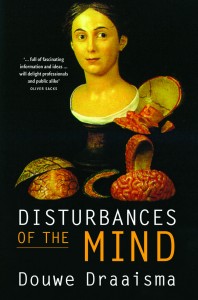MONDAY, 4 JANUARY 2010
Going beyond the typical scope of the debate, Mike Hulme, founding director of the Tyndall Centre for Climate Change Research, presents climate change as a philosophical idea and more than just a physical phenomenon. He begins with a brief history of the debate, focusing on six researchers who built the field. He then systematically presents evidence to demonstrate the factors that influence our view of climate change; debates on economic frameworks, moral duty, risk, and government policies. Hulme tries to underscore the uselessness of dramatising the effects of global warming, all the while posing hefty humanitarian questions about how we will manage global problems.Overall, the concepts are easy to understand, even as a non-specialist. However, one tenuous link between disagreements over religious beliefs and their effect on the discussion of global warming comes across as a little far-fetched in an otherwise convincing argument.
Why We Disagree About Climate Change provides real insight into how science and society interact. There is a provocative section dealing with the expectations put on science, and what happens when scientific debate occurs openly in society. Likewise, there is an interesting chapter on the problems of communicating controversial issues. These themes make the book applicable to many, if not all, areas of scientific research. Jessica Robinson
Disturbances of the Mind
Disturbances of the mind is akin to a novel that is hard to put down. The book provides fascinating information on several neurological disorders, both those that are well-known (Parkinson’s, Alzheimer’s, Tourette’s) and others that are less familiar (Bonnet’s, Clerembault’s). Each chapter deals with one syndrome and is self-contained.
But the book doesn’t focus on the symptoms or the biological mechanisms of the disorders. Instead it tells us the story of how these disorders got their names; the people that were first to notice them, those who actually named them and whether it is justified for these people to have taken the credit. It also discusses the current state of research in each field.
As with any issue relating to the mind, both science and philosophy are involved. To my pleasant surprise, the philosophy is discussed in a clear and succinct way that fits with the narrative of the book. The language is simple, with a target audience of both scientists and the general public. Overall, this book is a must read for anyone with an interest in the history of mind research. Swetha Suresh
Exposed: Ouija, Firewalking, and Other Gibberish
“All citizens should be aware of the principles of the scientific method […]observation of nature; reflection; and experiment”. Thus, using clear-cut examples and basic scientific principles, mixed with wit and sarcasm, Broch provides scientific explanations for the supernatural and exposes the charlatanism behind such practices as dowsing, clairvoyance and telepathy. Although his position is clear on these “heaps of utter nonsense”, he also explains why, from a psychological point of view, people are tempted to believe in the paranormal.
Broch emphasises the importance of using consistent methods throughout studies and illustrates this with a striking example. The US Federal Aviation Administration fired chickens at airplane windshields to assess the hazards of in-flight collisions with birds. In contrast to the original experiment, British engineers found that the chickens crashed through the windshield and smashed the dashboard. Advice from their American colleagues was to defrost the chicken prior to firing.
Little details make a big difference, and it is these subtleties that induce a smirk as Broch deconstructs common mystical phenomena. But he doesn’t just expose the errors of reason behind the metaphysical; he and his colleagues allow mediums and parapsychologists to perform their feats under mutually agreed conditions. Those of a firm scientific orientation are unlikely to find Broch’s conclusions surprising, but his book still offers some great material for conversation! Djuke Veldhuis



